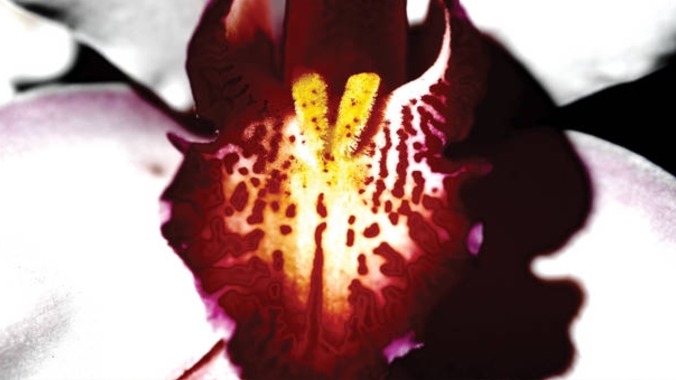Cellophane Memories is a Painfully Abstract Offering From Chrystabell and David Lynch
The singer’s second album with the legendary filmmaker floats aimlessly with little-to-no context and almost no beats to speak about.

If you don’t know David Lynch’s work, good luck. Cellophane Memories, his first full-length album with Chrystabell in 13 years, is another entry in the legendary film director’s large index of the weird. His debut album with Chrystabell, 2011’s supremely underrated This Train, had compulsively listenable songs with rhythms and beats (the title track, “Swing with Me”) as well as his expected foray into the avant-garde (“Bird of Flames”). But Cellophane Memories floats aimlessly with little-to-no context and almost no beats to speak of.
It’s hard to imagine this music as anything else but another augment of his cinematic work, although Cellophane Memories appears to exist on its own. It’s fitting that the two singles each have music videos, both directed by Lynch; most of these songs can barely stand on their own two feet as they are. Bless Chrystabell’s heart. She is a gifted singer (see This Train and her solo work), but here Lynch has relegated her talents to sighing close to the mic in a husky soprano with hushed melodies that do little to flatter her untouched voice, less Billie Eilish at her most jazzy and more a ghoul moaning atonally.
It’s a shame Cellophane Memories is such a bummer. This Train, while stylistically similar, has both Lynch and Chrystabell at the top of their game—songs you could picture humming along to while walking down dark alleys; songs you could burn the midnight oil with; songs you could seduce with. There was a life energy—an off-kilter life energy, but still very much a palpable feeling of love for music, mystery and sex. The songs on Cellophane Memories, however, as hinted by its nostalgic title, are sterile and anodyne, with little of the bluesy supernatural noir characteristic of Lynch’s best work. But there is one exception, “The Answers to the Questions,” the only song on the entire album with a beat. The rest of the record just sounds dead and airy, a collection of vaguely ambient, beatless dream pop songs that come and go like wisps of forgotten memories lost in a dark forest.
-

-

-

-

-

-

-

-

-

-

-

-

-

-

-

-

-

-

-

-

-

-

-

-

-

-

-

-

-

-

-

-

-

-

-

-

-

-

-

-








































